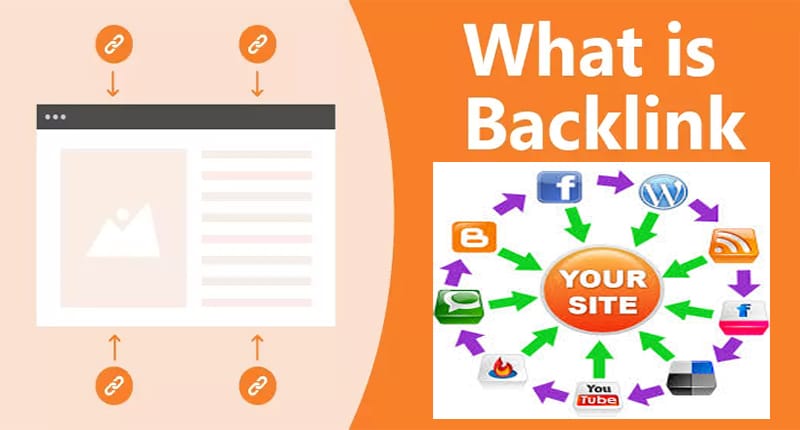Backlinks are links that link from one page to another on a website. A backlink is a link from another website to yours. You can link to another website.
For example, these DA PA Checker words link to Microsoft.com, so they now have a backlink from us.
In this guide, you’ll learn:
Why backlinks are important?
What makes a good backlink;
How to check backlinks (to any website);
How to get more backlinks
1. Rankings
Google and other search engines see backlinks to be votes of confidence. The more votes that your web pages receive, the more likely they will rank for the relevant search queries.
How can we tell? We have studied link-based rankings factors a few times and always find the following: The number of backlinks to unique websites (referred domains) correlates strongly for organic search traffic.
2. Discoverability
Search engines discover new content by returning to pages they know and checking for new links.
Search engines tend to revisit popular pages more than less popular ones. This means that they might discover your content quicker if backlinks are provided from popular pages.
3. Referral traffic
Backlinks are used to point people towards useful resources. They are clickable because of this.
Refer traffic is when someone clicks on your link.
What makes a backlink good?
All backlinks may not be created equal. These are just a few of the attributes that make a backlink useful and quality.
Relevance
Relevant backlinks are more valuable to Google because people are more inclined to click on them. This is what they discuss in their “reasonable surfer” patent.
What does this really mean? It is possible that a plumber will have backlinks to two pages: one on cats and one on installing boilers.
This idea is also applicable at the domain level.
plumbing.com readers are more likely than cats.com to click on a link that leads to a plumber’s website.
Authority
Backlinks to strong websites usually convey more authority than those from weaker ones.
We’ve looked at page-level authority a few times and have found a clear link between it and organic traffic.
However, backlinks to strong pages don’t always convey more authority.
Backlinks Topic is Also included in Digital Marketing and SEO category.
Google’s first patent states authority is divided equally among all outbound links to a webpage. If you have backlinks to two pages, and one page has more outbound linking than the other, then all things being equal, the link that comes from the lower authority page transfers more authority.
Is it really that easy these days? It’s not. Google holds a number of patents that describe different methods of assigning value backlinks.
Internal backlinks are another factor that contributes to the authority of a page.
Followed vs. nofollowed
The rankings of linked pages are not affected by nofollowed backlinks, although they could.
Link building is time-consuming and requires effort. It’s best to prioritize the most followed links. If you do get a nonfollowed link, don’t be too fussy. You may still get some SEO value from it.
How to get more backlinks
You can get more backlinks in three ways: create they, earn their trust, and build.
Earning backlinks
This happens when people find your content through search engines such as Google, social media or word-of-mouth and decide to link to it. Earned backlinks can be described as organic.
Creating useful content can increase your chances of getting backlinks.
Backlinking
This is where you manually add links from other websites to your website. This includes submitting to business directories and commenting on blogs.
Backlink building
You can then reach out to editors and webmasters of other sites to ask them to link back to your site. This will only work if you have a clear value proposition. This is where link building strategies come in.
9 Simple Steps to Increase Your Website’s Ranking in Google SERPs
These are some of the most tried-and-trued:
Guest blogging – Offer to write one-off posts for another website.
Broken Link Building: Locate dead links on other websites, then contact us and propose your work link to replace them. To do this, you can use our Broken Link Checker.
The Skyscraper Technique – Find relevant content, create something better, and then ask the original linker to link to your page.
Unlinked Mentions: Search for unlinked mentions about your brand and ask the author to make it clickable.


Thanks for this info on backlinking! Very informative!